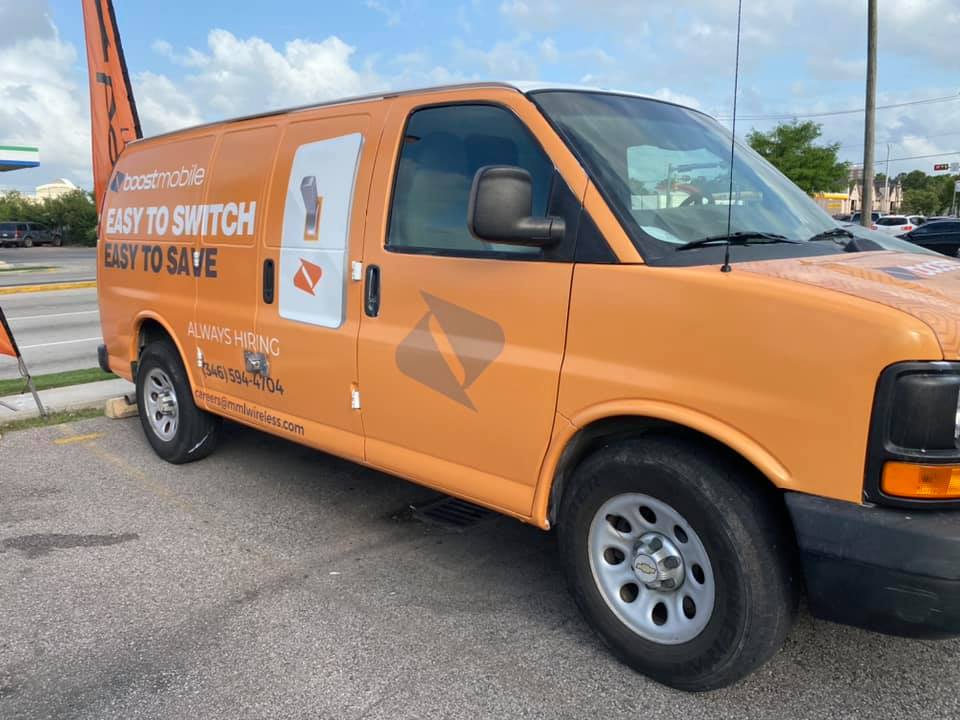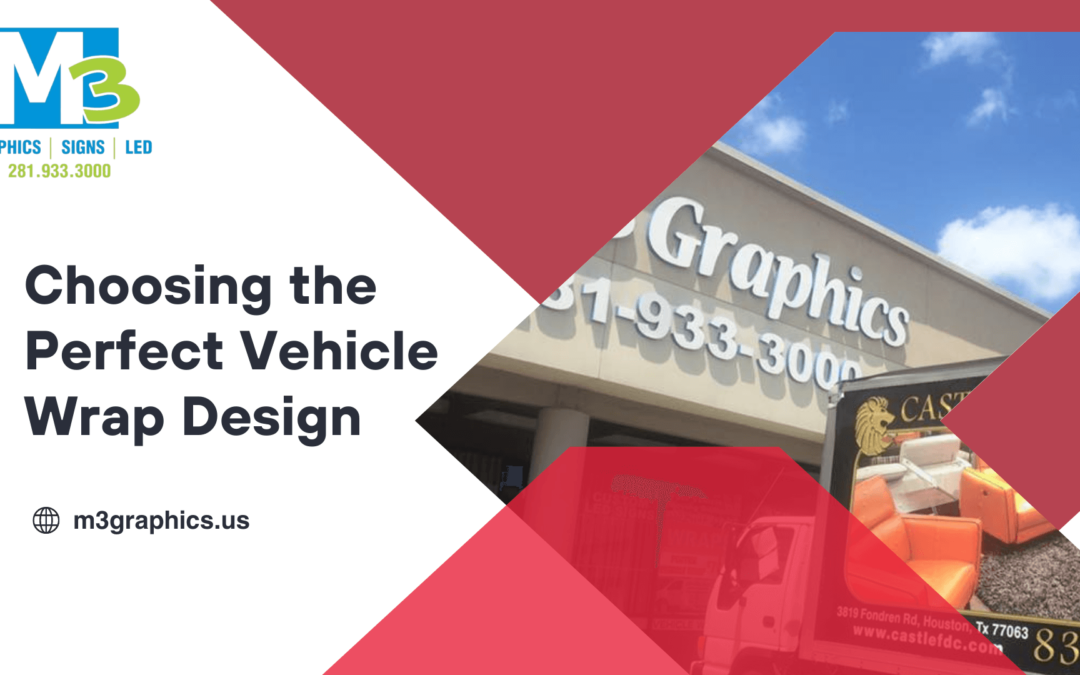When it comes to giving your car a fresh look or promoting your business on the go, vehicle wraps are a fantastic choice. But how do you go about choosing the right vehicle wrap design? This comprehensive guide will help you navigate the world of car wraps and make the best decision for your needs.
Introduction
In a world where appearances matter, your vehicle can be a canvas for self-expression or a moving billboard for your business. But with so many options available, choosing the perfect car wrap can feel overwhelming. This guide will walk you through everything you need to know, from understanding different types of wraps to maintaining your chosen design. So, let’s dive in and explore how to make your vehicle stand out in the best possible way.

Understanding Vehicle Wraps
Vehicle wraps are large vinyl decals or graphics applied directly over your car’s original paint. They come in various finishes, including matte, gloss, satin, and textured options. Wraps can cover the entire vehicle or just specific parts like the hood, roof, or doors.
What are Vehicle Wraps?
Vehicle wraps are essentially large vinyl decals designed to cover a car’s exterior. They can be applied over the paint and later removed without damaging the original finish. These wraps can transform the look of a vehicle, making it a popular choice for personal customization and business advertising.
History of Vehicle Wraps
Did you know that vehicle wraps date back to the 1920s? Originally used for advertising on trucks and buses, the technology has evolved significantly, offering a range of finishes and designs that cater to both commercial and personal use today.
Benefits of Vehicle Wraps
Vehicle wraps offer numerous benefits, making them a popular choice among car enthusiasts and business owners alike.
Personalization
A vehicle wrap allows you to customize your car’s appearance to reflect your personality or brand. Whether you prefer a sleek matte finish or a vibrant graphic, the options are endless.
Protection
Wraps provide a protective layer over your car’s paint, shielding it from UV rays, minor scratches, and other environmental hazards. This can help preserve the vehicle’s resale value.
Cost-Effective Advertising
For businesses, a wrapped vehicle is a moving billboard that can attract attention wherever it goes. Compared to traditional advertising methods, vehicle wraps offer a high return on investment.

Types of Vehicle Wraps
When it comes to choosing the right vehicle wrap design, it’s essential to understand the different types available. Each type offers unique benefits and suits different needs.
Full Wraps
A full wrap covers the entire vehicle, giving you the most extensive design options and a completely new look.
Partial Wraps
Partial wraps cover specific areas of the vehicle, such as the hood, roof, or sides. This option is more budget-friendly while still offering a significant visual impact.
Color Change Wraps
These wraps are designed to change the color of your vehicle without painting it. They are available in various finishes like matte, gloss, and satin.
Custom Graphic Wraps
Custom graphic wraps allow for unique designs, including logos, images, and text. This is an excellent option for businesses looking to brand their vehicles.

Factors to Consider When Choosing a Vehicle Wrap Design
Choosing the perfect car wrap involves considering several factors to ensure the final design meets your expectations and needs.
Purpose
What do you want to achieve with your vehicle wrap? Is it for personal customization or business advertising? Your purpose will influence the design and type of wrap you choose.
Budget
Vehicle wraps can range from a few hundred to several thousand dollars, depending on the complexity and size of the wrap. Determine your budget beforehand to narrow down your options.
Vehicle Type
The type and size of your vehicle will impact the design and cost of the wrap. Larger vehicles like trucks and vans will require more material and potentially more complex designs.
Local Regulations
Some areas have regulations regarding vehicle wraps, especially for commercial use. Check local laws to ensure your design complies with any restrictions.
Selecting the Right Material
The material of the wrap plays a crucial role in the appearance and longevity of your vehicle wrap.
Vinyl
Vinyl is the most common material used for vehicle wraps due to its durability and flexibility. It’s available in various finishes and can be easily removed without damaging the car’s paint.
Cast Vinyl vs. Calendared Vinyl
Cast vinyl is more durable and conforms better to the vehicle’s curves, making it ideal for full wraps. Calendared vinyl is thicker and less flexible, often used for flat surfaces and shorter-term applications.
Specialty Films
Specialty films include options like chrome, carbon fiber, and brushed metal finishes. These materials offer unique looks but may be more expensive and require professional installation.
Design Elements to Think About
Designing the perfect car wrap involves more than just picking a color or graphic. Consider these elements to create a cohesive and eye-catching design.
Color
Color is a critical component of any vehicle wrap design. Think about the message you want to convey and choose colors that align with your brand or personal style.
Graphics and Images
High-quality graphics and images can make your vehicle wrap stand out. Ensure any graphics used are high resolution to avoid pixelation when printed.
Text and Fonts
If your wrap includes text, choose legible fonts that are easy to read from a distance. Avoid overly intricate fonts that can be hard to decipher.
Layout
The layout of your design should flow with the contours of the vehicle. Consider how the design will look from different angles and ensure important elements are not obscured.

Working with a Professional Designer
While DIY wraps are an option, working with a professional Vehicle Wrap designer can ensure your vehicle wrap looks polished and professional.
Finding the Right Designer
Look for designers with experience in vehicle wraps. Check their portfolio to see examples of their previous work and ensure their style aligns with your vision.
Collaboration
Work closely with your designer to communicate your ideas and preferences. Provide them with any branding guidelines or specific elements you want included in the design.
Proofing
Before finalizing the design, review proofs carefully. Look for any errors or elements that don’t align with your vision and provide feedback to the designer.
Installation Process
The installation process is critical to the success of your vehicle wrap. A poorly installed wrap can lead to bubbles, wrinkles, and peeling.
Preparing the Vehicle
The vehicle must be thoroughly cleaned before installation. This ensures the wrap adheres properly and lasts longer.
Professional Installation
While DIY kits are available, professional installation is recommended for the best results. Professionals have the tools and expertise to install the wrap smoothly and accurately.
Post-Installation Care
After installation, avoid washing the vehicle for a few days to allow the wrap to set. Follow any additional care instructions provided by the installer.
Maintaining Your Vehicle Wrap
Proper maintenance is essential to keep your vehicle wrap looking its best.
Cleaning
Wash your wrapped vehicle regularly using a gentle soap and water. Avoid high-pressure washers and abrasive cleaners that can damage the wrap.
Repairing Damage
If the wrap gets damaged, address it promptly. Small tears and scratches can often be repaired without replacing the entire wrap.
Long-Term Care
With proper care, a vehicle wrap can last up to five years. Avoid prolonged exposure to harsh weather conditions and park in the shade whenever possible.
Cost Considerations
Understanding the costs involved in vehicle wraps can help you budget accordingly.
Initial Costs
The cost of a vehicle wrap depends on the type of wrap, the size of the vehicle, and the complexity of the design. Full wraps typically cost more than partial wraps.
Additional Costs
Consider additional costs such as professional design fees, installation, and maintenance. These can add to the overall expense but ensure a high-quality result.
Return on Investment
For businesses, a vehicle wrap can offer a high return on investment by reaching a wide audience and lasting for several years.
Mistakes to Avoid
Avoiding common mistakes can ensure your vehicle wrap looks great and lasts longer.
Skimping on Quality
Don’t cut corners on materials or installation. High-quality vinyl and professional installation are worth the investment.
Ignoring Maintenance
Proper maintenance is crucial for the longevity of your wrap. Neglecting care can lead to premature wear and damage.
Overcomplicating the Design
Simplicity can be more effective than an overly complicated design. Ensure your wrap is easy to read and visually appealing.
Real-Life Examples
Looking at real-life examples can provide inspiration for your vehicle wrap design.
Successful Business Wraps
Many businesses have successfully used vehicle wraps to promote their brand. Look at examples from various industries to see what works well.
Creative Personal Wraps
For personal customization, explore creative and unique wraps that showcase individual style. From bold graphics to subtle color changes, the possibilities are endless.
Frequently Asked Questions
1. How long does a vehicle wrap last?
With proper care, a high-quality vehicle wrap can last up to five years. Factors like exposure to the elements and how well it’s maintained can affect its lifespan.
2. Can a vehicle wrap be removed?
Yes, vehicle wraps can be removed without damaging the original paint. This makes them an excellent option for temporary customization or advertising.
3. How much does a vehicle wrap cost?
The cost of a vehicle wrap varies based on the type of wrap, vehicle size, and design complexity. On average, prices can range from $1,500 to $5,000 for a full wrap.
4. Can I wash my car as usual after wrapping it?
Yes, but it’s best to avoid high-pressure washes and abrasive cleaners. Use a gentle soap and water to clean your wrapped vehicle.
5. Do I need a professional to install my vehicle wrap?
While DIY kits are available, professional installation is recommended for the best results. Professionals have the tools and expertise to apply the wrap smoothly and correctly.
Conclusion
Choosing the perfect vehicle wrap design is a creative and exciting process. Whether you’re looking to personalize your car or promote your business, a well-designed and professionally installed wrap can make a significant impact. By considering factors like material, design elements, and professional installation, you can ensure your vehicle wrap meets your expectations and lasts for years to come.
With this guide, you’re well-equipped to embark on your journey to finding the perfect vehicle wrap. Happy wrapping!

